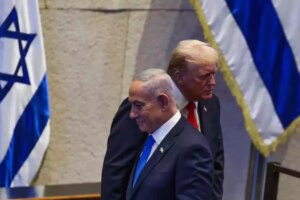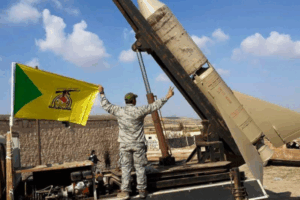
2025-11-09T21:37:48+00:00
font
Enable Reading Mode
A-
A
A+
Shafaq News – Baghdad
Four years after the lowest turnout in its post-2003 history, Iraq heads
to the November 11 elections under quieter but sharper scrutiny. The public
mood is neither revolutionary nor indifferent — it is conditional. Iraqis are
ready to vote, but only for those who can prove they can deliver jobs,
services, and credible governance.
In 2018, turnout stood at 44.5%, the lowest since 2005. By 2021, it fell
to 41%, reflecting deep frustration with broken reform promises and the belief
that voting changed little. Political monitors expect participation this year
to drop even further, as skepticism toward reform remains strong.
That disillusionment defined 2021 — empty polling stations, subdued
campaigns, and a prevailing sense of continuity over change. By 2025, social
and economic pressure remains heavy, yet public expectations have evolved.
Shafaq News field reports show a more pragmatic electorate: voters now view
participation as a test of competence, not loyalty.
Economic hardship continues to drive this shift. Unemployment reached
15.5% in 2024, with youth joblessness exceeding 32%, according to international
data. Government claims of modest improvement — lowering the rate to about 13%
— have not eased public frustration. The World Bank’s 2025 Poverty and Equity
Brief puts Iraq’s poverty rate at 17.5%, while humanitarian monitors say more
than 90% of households still face unreliable electricity, water, and
healthcare.
Such realities have hardened voter expectations. “I registered my car
online, and they came to my house to deliver the plate — that’s new,” said
Mustafa Hussein, a civil servant in Baghdad. Others remain skeptical. “Those we
elected before — big change did happen, but not for us,” said Ali Abd
al-Hussain, a 28-year-old musician.
The calm of 2025 is not apathy; it is conditional patience. Iraqis are
willing to engage, but only with proof. Candidates offering costed, realistic
plans for jobs and services may regain trust. Those relying on slogans risk
reviving the same disillusionment that once emptied polling stations.
Read more: Behind Iraq’s special vote: High turnout, higher tension
Across Iraq, campaign rhetoric now centers on reform, employment, and
infrastructure rather than sectarian identity.
Prime Minister Mohammed Shia al-Sudani, running in Baghdad, showcases
his record as evidence of “governance over slogans,” emphasizing expansions in
power generation, digital services, and stalled housing projects. His message
targets middle-class voters seeking stability and order. Nouri al-Maliki’s
State of Law Coalition appeals to a similar base, tying stability and service
delivery to a strong central government.
Among Sunni blocs, economic messaging dominates: Mohammed al-Halbousi’s
Taqaddum and Muthanna al-Samarrai’s Al-Azm promise reconstruction and
decentralization to empower local governments.
In the Kurdistan Region, both the KDP and PUK are leaning on pragmatic
economic themes — energy reform, social equity, and budget transparency — to
re-engage voters disillusioned by years of political paralysis.
Still, economists note that many platforms lack financial clarity. A
Shafaq News review of campaign programs found “development pledges are
plentiful, but fiscal roadmaps are vague.” Without structural budget reform,
such promises risk turning into another cycle of populism rather than progress.
Iraqis have heard the same pledges of reform and anti-corruption since
2005, with little visible improvement. A nationwide survey by Shafaq News shows
two-thirds of respondents doubt any new government will significantly improve
their lives.
A senior Shiite bloc member admitted privately that “voters no longer
believe in slogans; they believe in service meters — water, power, and
salaries.” The remark captures Iraq’s shift from ideological loyalty to
measurable governance.
Yet bureaucracy continues to impede delivery. A 2025 UNDP report found
that fewer than 60% of public-investment projects approved in the 2023 budget
were completed, hindered by procurement delays and overlapping authorities.
This inefficiency feeds a cycle of mistrust: every government inherits
expectations it cannot meet.
“Iraq’s problem isn’t a lack of plans — it’s a lack of execution,” said
one citizen. “People have stopped listening to promises because they’re waiting
for proof.”
Written and edited by Shafaq News staff.





